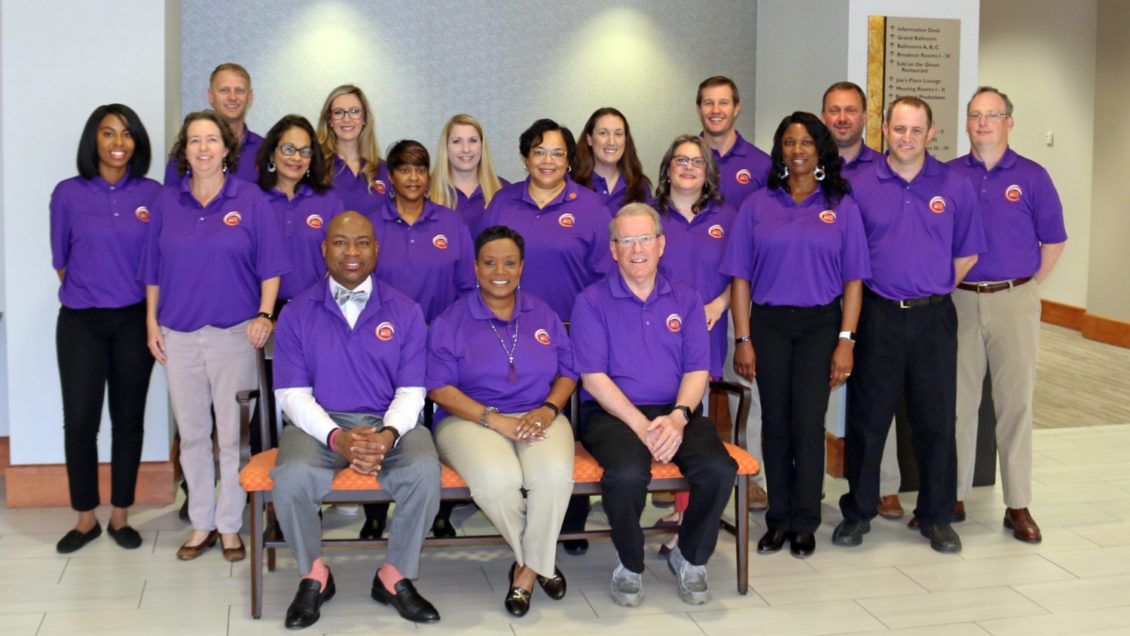It’s been said that the function of leadership is to produce more leaders, and with the second phase of Clemson University’s Extension Emerging Leadership Initiative (EELI) in the books, members of the inaugural class believe the program is poised to do just that.

Dubbed EELI 2.0, the initiative’s secondary phase shifted the curriculum from basic leadership training to applying the knowledge and skills gleaned from the first seven-month phase — asking participants to plan each and every class program, participate in leadership shadowing, develop a mentorship program for Extension and serve on various committees and Extension projects.
For Charleston County Horticulture Agent Zack Snipes, the program had the same goal as any other Extension program worth its salt: making an impact.
“The best programs, you can’t necessarily measure the impacts, but you know they are there — because you see the lightbulb go off in a farmer’s head or you work with a teacher and see their mindset change about agriculture,” he said. “I think this program is going to be like that for the culture of Extension. People want to get into this program and change their professional development and impact the people they work with and their lives and communities, and I think it’s going to have a ripple effect down the road.”
A great deal of the credit for creating that ripple effect belongs to Midlands District Extension Director Deon Legette, who was awarded the prestigious Martin Luther King Jr. Award for Excellence in Service in January by the President’s Office and the Division of Inclusion and Equity at Clemson University.

Legette was inspired to create the program after taking part in the President’s Leadership Institute, a nine-month leadership development program started by Clemson University President James P. Clements. Upon completion, Legette approached Clemson Extension Director Tom Dobbins and Associate Director Brian Callahan about creating a similar program for Extension personnel.
Dobbins praised Legette not only for the vision to conceive of such a program for Extension, but also for providing the initiative and leadership to bring it to fruition.
“Deon is helping to create a culture of success and is helping Extension agents and associates reach their full potential,” he said. “The EELI participants are making a huge difference in our organization, and I am very grateful to Deon for all her hard work on this.”
The objectives of the leadership initiative were to provide opportunities for personal growth and career development, enhance leaders’ roles at a higher level of excellence, bolster cohesion and team building among leaders, promote and practice interpersonal skills, and provide tools and skills to enhance leadership.
“I have seen people who came in the class who would barely even talk, and now they are standing in front of the group presenting,” Legette said. “We had two people who presented at the university’s Board of Trustees meeting in February, six of them held a workshop at the Men of Color Summit in Greenville, and we have many other leadership opportunities coming up. This class has definitely set the bar.”
While some members of the inaugural class are preparing to embark on EELI 3.0 — a voluntary continuation of the program that won’t hold traditional meetings but instead seek leadership opportunities for its members in the Clemson University community — the next cohort of the class is planned for Fall 2020. The EELI program annually selects up to 20 professionals that are either at the county or state level with a minimum of three years of experience with Extension.

Senior Agribusiness Extension Agent Will Culler said he had been impressed by how the second phase of the program had taken the leadership skills gleaned from the first phase and built upon them through experiential learning.
And because Extension employees are dispersed across South Carolina, Culler said one of the advantageous aspects of the program was simply the opportunity to build relationships with counterparts around the state.
“This group has been a wonderful group to get to know,” he said. “These are future leaders of Extension and just being able to be with these guys and grow with them in our leadership skills has been amazing. That’s built the trust, which has built the confidence, which has built the leadership skills in my opinion.”
And those leadership skills are essential for Extension personnel. Because Extension has offices in every county in South Carolina, the need for each agent or associate to serve as a leader and take personal initiative within their communities is only amplified.
“We’re here to serve the community in 46 counties in South Carolina — period,” Culler said. “We are the face of Clemson University in those counties and, if we can exhibit that face in a leadership role, all the better. That’s what it’s all about.”
Get in touch and we will connect you with the author or another expert.
Or email us at news@clemson.edu

